YOU PROBABLY WANT TO READ PART ONE BELOW FIRST!
The first half of this disjointed essay covered the first half of my attempt to watch a film from a different country every night for as many nights as I could manage. I made it to thirteen and recounted the first seven in part 1. I made it from Sweden to Brazil in a week.
There is a point to this; I want to encourage people to watch and think about movies they might not normally approach. I plan to do this again. Starting over maybe or making it horror movies from different countries. Who knows? The permutations are endless. I know it is sometimes difficult, with renting by mail to get a new movie every night so maybe you can make up different rules. I do think having guidelines is important. Many nights I just didn’t want to watch a movie! But I did, because I didn’t want to break my rules.
But, of course, I did break the rules a little with a couple of the movies we are about to chat about.
Yes, I cheated on the film, Mandabi (Senegal) but I have an excuse. This is the second film from the one African director everyone who knows anything about movies knows, Ousmane Sembène. I fudged my rules a little because Sub-Saharan Africa's first movie (made by an African) was likely Sembène's, Black Girl from 1966. I picked this 1968 film because it is, frankly, a better movie.
An out of work man gets a money order from his nephew in Paris with instructions on what to do with the money. In a short, clever, scene Sembène illustrates that a street sweeper in Paris makes enough to support an extended family in Senegal. The money order is nothing but trouble, unleashing a hoard of desperate people, corrupt bureaucrats and angry relatives to put the man deeper in debt than before he received this largess. It is like a Kafka story set in West Africa. I would also liken it to films like The Out of Towners (the Jack Lemon film not the remake) and After Hours. Everything that can go wrong does.
On film number nine I really wanted something Russian. You can only ignore Russia for SO long when it comes to film. I desperately wanted to avoid Eisenstein and settled on Ballad of a Soldier (USSR). I approached the film with trepidation. It was one I was not SURE if I had seen AND it was a Russian movie.
Russian movies from the beginning of film to the end of Stalin are often technically brilliant and full of people praising the motherland. The motherland is great and all but I get a little sick of hearing about it. This movie has little of that (mostly in a short, ending voice over). It is beautifully shot and acted and is more a story about basic human decency than about war or Communism. A young signalman at the front, almost by accident, takes out two German tanks. When his commanding general wants to give him a commendation he asks, instead, for a chance to go see his mother on leave to fix her leaky roof. He has six days to get there and his trip is delayed by his inability to say no to the needs of other people. It is a wonderful film on every level.
Finding a suitable movie from Spain during my time frame isn’t the simplest of things. Civil War, Fascist terror and generalized repression intervened to make the country inhospitable to creative types (no matter what Dali may have said).Muerte de Ciclista (sounds better than Death of a Cyclist) (Spain) is directed by Juan Antonio Bardem (uncle of Javier Bardem), this film is beautiful. It looks fantastic, and not just because Lucia Bose is stunningly gorgeous.
You also, gradually, come to understand and, in some way, sympathize with each character in the film. How this is done is masterful considering we are talking about a movie that does not quite hit 90 minutes and has half a dozen main characters. They deftly steer around such thorny issues (for Franco's Spain) as the civil war. They talk about characters fighting in it, allude to how it ruined their lives but never mention which side they fought on. This no doubt left censors certain it was Franco's side while audience members could draw their own conclusions (if he was on the winning side would he be this disaffected?). I could go on and on. This is the best movie I have seen of this group of ten. Better even than Bridge on the River Kwai and Amachord! Javier should be proud of his uncle as this is easily one of the best films I have ever seen.
For Germany I chose Die Brucke (The Bridge). There are a lot of good films before World War II from the likes of Fritz Lang and G.W. Pabst but that would have been the easy route (and do not talk to my about that Nazi bitch Leni Riefenstahl. She should have ended up on a rope and her movies are propaganda films and nothing more. Sorry film professors and apologists).
The twenty years (or thereabout) following the war were lean years for the German film industry. I am sure there were some decent movies but not much more than that. It wasn't until the 60s that there was a renaissance in West German film making. One film does stand out--at least in critical acclaim-- and that this film, from 1959. It is a technically well done, well shot, decent looking, decently acted film about several high school students drafted into the German army at just about the end of the war. Unfortunately it is really an "our brave boys" film with the trappings of an anti-war film hung on it.
I was rooting for all the main characters to die pretty fast in this one. It is just not a particularly convincing or moving film. I also question the "true story" part of it for a variety of reasons I will not get into. They also have American soldiers shouting silly things to the kids like "We don't fight kids". U.S. troops wiped out groups of Hitler Youth with some regularity and justifiably so; When someone is firing an anti-tank weapon at you, you do not check his ID. So The Bridge was a disappointment. Yet it may also be a precursor of the great things to come in the next decade so it is worth seeing and knowing for that alone.
I had never even heard of A Girl in Black (Greece). I watched an hour of this when I realized I was not in the mood and was probably not giving this sometimes beautifully shot film the chance it deserved (second time I cheated as I did not watch the whole movie). I resumed the next evening and was rewarded.
I figured out, in part, what is so off putting about this movie; it is really sad. It isn’t unrelentingly so but there is a melancholy that permeates the film. All the shots are just a LITTLE longer than is normal in commercial films (even of that time) and they linger on people in groups. There is a long shot of a funeral procession, then there is a different long shot of the same funeral procession. It makes for a sort of languid pace but that is not really an insult to the film. It helps you feel l the characters emotions and also to get a feel for the beautiful surroundings. It is a slow film but it is worth sticking out with. There is truly beautiful cinematography throughout. People fond of Neorealist films (a camp you could include Muerte de Ciclista in too) will enjoy this despite its lack of UNRELENTING sadness.
Finally I arrived at the silent Danish classic, Vampyr. Carl Theodor Dreyer directed this fine film and the most perplexing thing about it is that no one has remade this exact vampire story. A man comes to an inn; we know and learn nothing about him in the movie. But we know the inn and its environs are infested with the minions of a vampire. One of these meets a death similar to one of the bad guys in the movie Witness (and I am not talking about Danny Glover). It is a silent film with minimal titles, telling the story through expression and movement. One of the great things about silent films, in the hands of a capable director, is how they are almost ballet. The film is also moody and ethereal which always appeals to me.
I ran out of gas and didn’t get to Pather Panchali (India) and Women of the Port (Mexico).
The point of this is more than just a test of endurance. It is a way to find things out about films, to view films you haven’t seen for times or have never seen before. It does require research if you want to watch films “widely accepted as classics.” But a little research isn’t a difficult thing. Make up your own rules and get to watching movies.
The first half of this disjointed essay covered the first half of my attempt to watch a film from a different country every night for as many nights as I could manage. I made it to thirteen and recounted the first seven in part 1. I made it from Sweden to Brazil in a week.
There is a point to this; I want to encourage people to watch and think about movies they might not normally approach. I plan to do this again. Starting over maybe or making it horror movies from different countries. Who knows? The permutations are endless. I know it is sometimes difficult, with renting by mail to get a new movie every night so maybe you can make up different rules. I do think having guidelines is important. Many nights I just didn’t want to watch a movie! But I did, because I didn’t want to break my rules.
But, of course, I did break the rules a little with a couple of the movies we are about to chat about.
Yes, I cheated on the film, Mandabi (Senegal) but I have an excuse. This is the second film from the one African director everyone who knows anything about movies knows, Ousmane Sembène. I fudged my rules a little because Sub-Saharan Africa's first movie (made by an African) was likely Sembène's, Black Girl from 1966. I picked this 1968 film because it is, frankly, a better movie.
An out of work man gets a money order from his nephew in Paris with instructions on what to do with the money. In a short, clever, scene Sembène illustrates that a street sweeper in Paris makes enough to support an extended family in Senegal. The money order is nothing but trouble, unleashing a hoard of desperate people, corrupt bureaucrats and angry relatives to put the man deeper in debt than before he received this largess. It is like a Kafka story set in West Africa. I would also liken it to films like The Out of Towners (the Jack Lemon film not the remake) and After Hours. Everything that can go wrong does.
On film number nine I really wanted something Russian. You can only ignore Russia for SO long when it comes to film. I desperately wanted to avoid Eisenstein and settled on Ballad of a Soldier (USSR). I approached the film with trepidation. It was one I was not SURE if I had seen AND it was a Russian movie.
Russian movies from the beginning of film to the end of Stalin are often technically brilliant and full of people praising the motherland. The motherland is great and all but I get a little sick of hearing about it. This movie has little of that (mostly in a short, ending voice over). It is beautifully shot and acted and is more a story about basic human decency than about war or Communism. A young signalman at the front, almost by accident, takes out two German tanks. When his commanding general wants to give him a commendation he asks, instead, for a chance to go see his mother on leave to fix her leaky roof. He has six days to get there and his trip is delayed by his inability to say no to the needs of other people. It is a wonderful film on every level.
Finding a suitable movie from Spain during my time frame isn’t the simplest of things. Civil War, Fascist terror and generalized repression intervened to make the country inhospitable to creative types (no matter what Dali may have said).Muerte de Ciclista (sounds better than Death of a Cyclist) (Spain) is directed by Juan Antonio Bardem (uncle of Javier Bardem), this film is beautiful. It looks fantastic, and not just because Lucia Bose is stunningly gorgeous.
You also, gradually, come to understand and, in some way, sympathize with each character in the film. How this is done is masterful considering we are talking about a movie that does not quite hit 90 minutes and has half a dozen main characters. They deftly steer around such thorny issues (for Franco's Spain) as the civil war. They talk about characters fighting in it, allude to how it ruined their lives but never mention which side they fought on. This no doubt left censors certain it was Franco's side while audience members could draw their own conclusions (if he was on the winning side would he be this disaffected?). I could go on and on. This is the best movie I have seen of this group of ten. Better even than Bridge on the River Kwai and Amachord! Javier should be proud of his uncle as this is easily one of the best films I have ever seen.
For Germany I chose Die Brucke (The Bridge). There are a lot of good films before World War II from the likes of Fritz Lang and G.W. Pabst but that would have been the easy route (and do not talk to my about that Nazi bitch Leni Riefenstahl. She should have ended up on a rope and her movies are propaganda films and nothing more. Sorry film professors and apologists).
The twenty years (or thereabout) following the war were lean years for the German film industry. I am sure there were some decent movies but not much more than that. It wasn't until the 60s that there was a renaissance in West German film making. One film does stand out--at least in critical acclaim-- and that this film, from 1959. It is a technically well done, well shot, decent looking, decently acted film about several high school students drafted into the German army at just about the end of the war. Unfortunately it is really an "our brave boys" film with the trappings of an anti-war film hung on it.
I was rooting for all the main characters to die pretty fast in this one. It is just not a particularly convincing or moving film. I also question the "true story" part of it for a variety of reasons I will not get into. They also have American soldiers shouting silly things to the kids like "We don't fight kids". U.S. troops wiped out groups of Hitler Youth with some regularity and justifiably so; When someone is firing an anti-tank weapon at you, you do not check his ID. So The Bridge was a disappointment. Yet it may also be a precursor of the great things to come in the next decade so it is worth seeing and knowing for that alone.
I had never even heard of A Girl in Black (Greece). I watched an hour of this when I realized I was not in the mood and was probably not giving this sometimes beautifully shot film the chance it deserved (second time I cheated as I did not watch the whole movie). I resumed the next evening and was rewarded.
I figured out, in part, what is so off putting about this movie; it is really sad. It isn’t unrelentingly so but there is a melancholy that permeates the film. All the shots are just a LITTLE longer than is normal in commercial films (even of that time) and they linger on people in groups. There is a long shot of a funeral procession, then there is a different long shot of the same funeral procession. It makes for a sort of languid pace but that is not really an insult to the film. It helps you feel l the characters emotions and also to get a feel for the beautiful surroundings. It is a slow film but it is worth sticking out with. There is truly beautiful cinematography throughout. People fond of Neorealist films (a camp you could include Muerte de Ciclista in too) will enjoy this despite its lack of UNRELENTING sadness.
Finally I arrived at the silent Danish classic, Vampyr. Carl Theodor Dreyer directed this fine film and the most perplexing thing about it is that no one has remade this exact vampire story. A man comes to an inn; we know and learn nothing about him in the movie. But we know the inn and its environs are infested with the minions of a vampire. One of these meets a death similar to one of the bad guys in the movie Witness (and I am not talking about Danny Glover). It is a silent film with minimal titles, telling the story through expression and movement. One of the great things about silent films, in the hands of a capable director, is how they are almost ballet. The film is also moody and ethereal which always appeals to me.
I ran out of gas and didn’t get to Pather Panchali (India) and Women of the Port (Mexico).
The point of this is more than just a test of endurance. It is a way to find things out about films, to view films you haven’t seen for times or have never seen before. It does require research if you want to watch films “widely accepted as classics.” But a little research isn’t a difficult thing. Make up your own rules and get to watching movies.
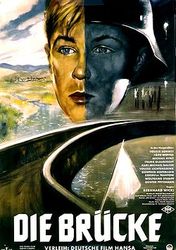
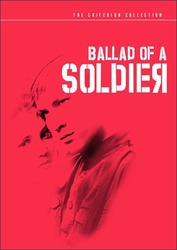
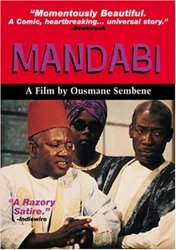
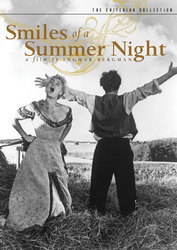
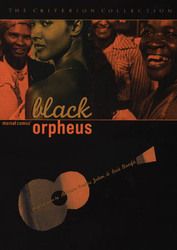
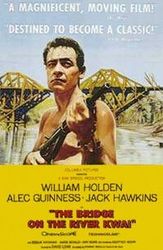
 RSS Feed
RSS Feed